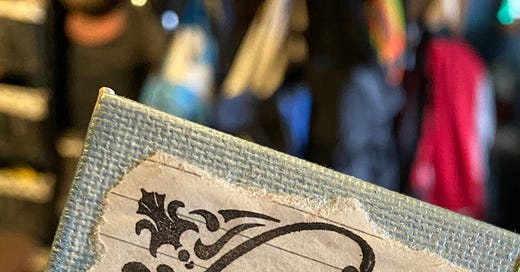The Intertwining of Lived Experience and Perception
Navigating your child's experience of you ...
As the cranberry sauce made its way around the dinner table, Uncle stated Grandma had once pushed him out of a moving car. The declaration was so preposterous everyone laughed at its absurdity. While the rest of the family continued to eat, Uncle recounted Grandma’s furious expression and the way her hand had looked as she pushed him out of the car. Defending herself, Grandma voiced how angry she had been when he would not stop playing with the latch. In the end, the door had swung open, and she reached back to catch her son, who was already well on his way out. Everyone tried to convince Uncle he had been mistaken. There was no way Grandma had pushed him out of the car deliberately. The situation piqued my interest. Is there a possibility my uncle was not lying?
Understanding the difference between lived experience and perception is essential to address this question.
Perception is the conscious recognition of sensory information. Think of it as a mental impression that can be accurate or distorted.
Lived experience is the person’s first-hand involvement, and represents the person’s perceived reality. In the moments before abruptly falling out of the car, Uncle wholeheartedly believed his mother had pushed him out. This was his lived experience, and to him, this perception had been very real.
Children tend to be egocentric, and perspective taking is something that improves as an individual grows older. But not all the time. Intersubjective thinking is a developmental achievement, and not everyone figures it out. I am sure all of us can recall a time when we have met an individual who refuse to see a differing perspective.
In all fairness, I think my uncle knew his mother’s truth, and was just being a bit of a comedian. We can lie, yet still uncover a certain truth in our anxiety. As for Grandma, listening to her child’s lived experience took her by surprise. How terrifying it must have been for her son to have believed this. What impact had it had on his life? Though she meant well, her actions contributed to the harm her child felt. How was she to navigate this? According to social psychology, more harm is done by those who mean well than those with malicious intent. But is defending your well-meaning intentions the correct thing to do?
The intertwining of perception and lived experience leads to many family feuds. Parents usually give way to self defense and say things like, “that is not true,” or, “I did the best I could.” Statements that cut off the child’s lived experience and how it impacted them. Ultimately, children end up bearing the burden of listening to their parents’ lived experience while their own is overshadowed. Sadly, in these situations, the child ends up loving their parent unconditionally instead of the other way around. While hearing your child’s perspective can be challenging, parents who accomplish this are given the chance to build a stronger bond. They also facilitate their child’s ability to find grace and forgiveness. So, don’t miss out. It warms the heart when the ones we love say something like, “tell me more about how that impacted you,” instead of calling you a liar.





"Tell me more..." Three simple words that can open doors in any relationship. Powerful example in your post.